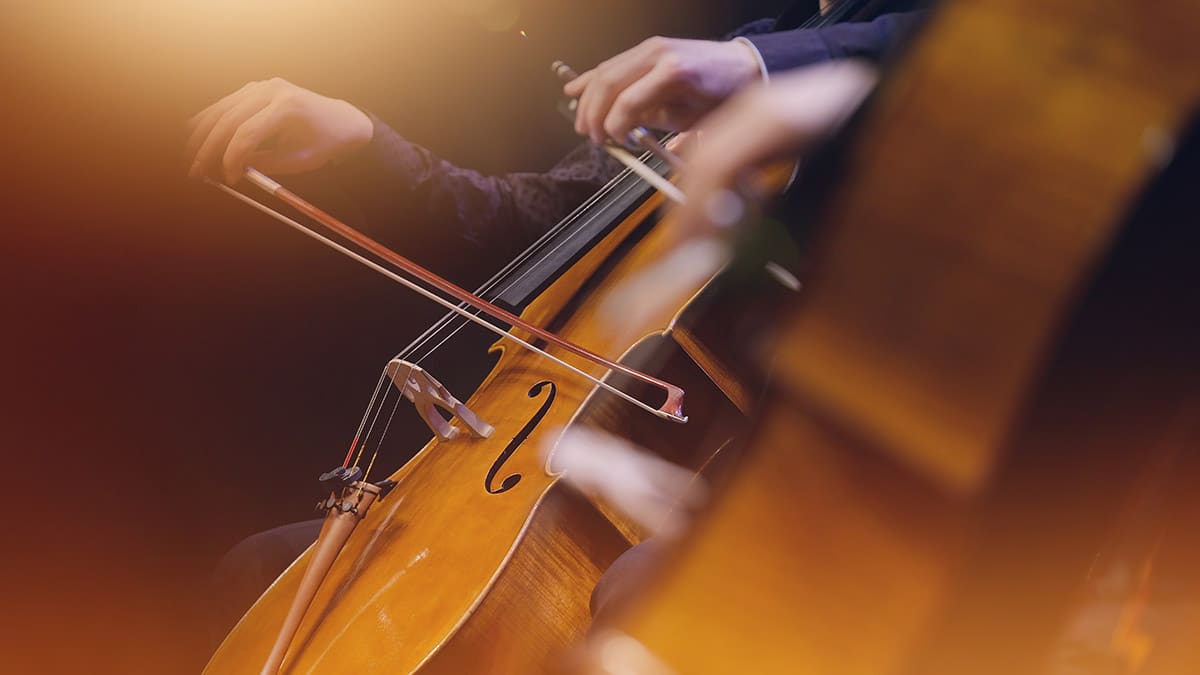Seeing people face-to-face has been a rare experience in the last few years, so it was a special pleasure to meet cellist and editor-in-chief of Ukraine’s Radio Kultura, Oleksandr Piriyev, in person when he was attending the EBU’s meeting for classical music leaders in Cologne.
Until recently, his job description matched the responsibilities of many other attendees — planning music programming and recording projects and organizing live broadcasts.
Of course, all this has changed dramatically since Russia invaded Ukraine, and he now sees himself as an ambassador for Ukrainian musical culture, working with broadcasters worldwide to ensure the widest possible recognition of Ukrainian music and composers. With the concert calendar, broadcasts and recordings shelved, he has directed his energy into this new mission of communication.
Piriyev has a simple motto: “Without culture, there is no nation”; or, as he starkly expressed at the meeting: “No culture, no nation — no nation, no culture.” It’s a clear message to make us stop and think, particularly if we are fortunate enough to come from countries or communities where our sense of identity is not immediately threatened: Have we become complacent about our cultural treasures? What are media organizations doing to be responsible custodians of our heritage? Are we investing enough in the new talent without which our future becomes bleak?
Preserving heritage
For many of us, such questions are topics for urgent discussion. For Ukraine, the question has immediate relevance, especially since, as Piriyev maintains, Russia has for many years failed to recognize the distinctiveness of Ukrainian culture, and thereby undermined the reality of Ukraine as an independent nation. Yet anyone who visits Kyiv will surely be impressed by the city’s ancient culture in its impressive churches and monasteries, dating back around 1000 years to the very earliest days of the adoption of Christianity in that region.
Piriyev has a simple motto: “Without culture, there is no nation”; or, as he starkly expressed: “No culture, no nation — no nation, no culture.”
Radio has been central to sustaining Ukrainians during the war. The presenters support and inspire the population, and radio works even at moments when more recent technologies are unavailable, due to heroic efforts by engineers to maintain the service.
It’s horrendous to recount that when I asked Piriyev about his colleagues, the first thing he found it necessary to tell me was that all his colleagues were alive. And further to that good news, they could stay in touch because of online communication. The COVID pandemic has been strangely positive for the broadcasters in Ukraine because it speedily promoted modernization and the adoption of the latest technology.
However, under the extreme circumstances of an invasion, regular programs could not continue, so all the radio channels came together to provide a single information channel dedicated to public announcements, saving many lives. Yet, Radio Kultura is now returning to pre-invasion programming to provide respite from the news and some solace from the dreadful events. Piriyev considers this necessary to preserve people’s well-being as much as possible.
Piriyev states his belief that music is a positive force for good — it brings people together despite different languages and cultures. And in the current situation, making sure Ukrainian music is widely known — all genres, classical and popular — means that Ukraine remains at the forefront of people’s minds.
Sharing Ukranian music
He is grateful to the EBU music area, which has played an important role in ensuring that Ukrainian music is widely disseminated across the European public service stations. He also wants to encourage as many broadcasts as possible, including new performances. He is planning further projects together with the EBU to involve radio orchestras from around Europe performing Ukrainian music.
Because of his central role in Ukrainian musical life, Piriyev knows most of the country’s contemporary classical music composers, some of whom have dedicated their cello works to him. He says the three leading composers are easy to remember because their names begin with the letter S: Myroslav Skoryk, Yevhen Stankovych and Valentyn Silvestrov.
The EBU music area has played an important role in ensuring that Ukrainian music is widely disseminated across the European public service stations.
It goes without saying that he would like to encourage any readers responsible for radio stations to include Ukrainian music in their programs. A good starting point is “Melody,” composed by Skoryk as the tragedy unfolded in the Donbas region. Piriyev performed the German premiere of this work in Munich in mid-June.
As to popular music, Piriyev recommends music bosses explore the works of the bands Skryabin, Okean Elzy and Druga Rika; and singers Oleksandr Ponomaryov, Tina Karol and Jamala, who memorably won Eurovision in 2016.
Piriyev’s interest in popular music is genuine. He may seem immersed in classical music, but he is a big fan of Queen. In September last year, he performed a cello arrangement of some of his favorite Queen songs in the city of Mariupol. That seems a distant memory now.
The stage upon which he performed was in front of the theater the Russians bombed at the start of the invasion. Amid so much destruction, playing the music of Ukraine is an important way of keeping the culture alive and ensuring we never forget.
The author was head of Radio at the EBU until 2020, and before that managing editor of one of the BBC’s national stations. He currently advises media organizations, such as Radioplayer and the European Digital Radio Alliance.

